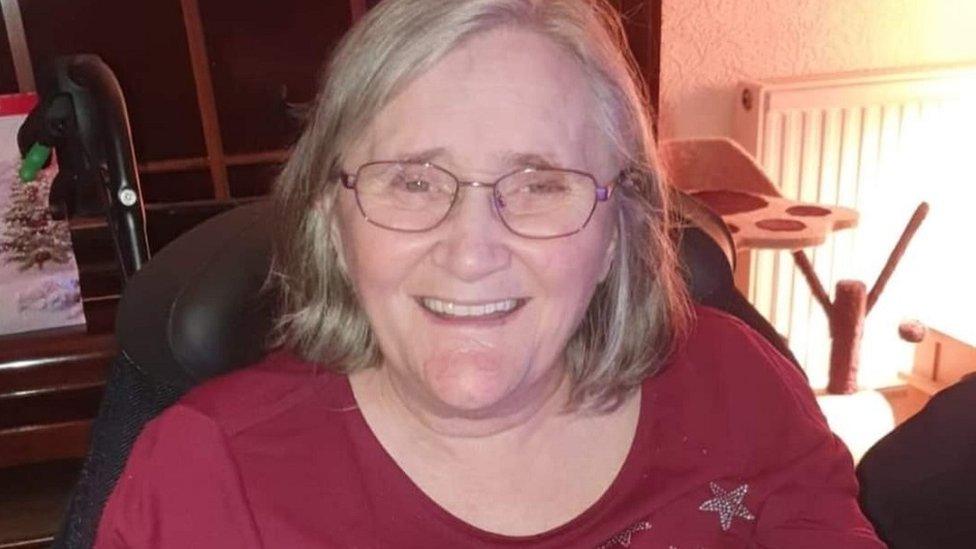Care home Covid ruling could prompt Scottish legal cases
- Published
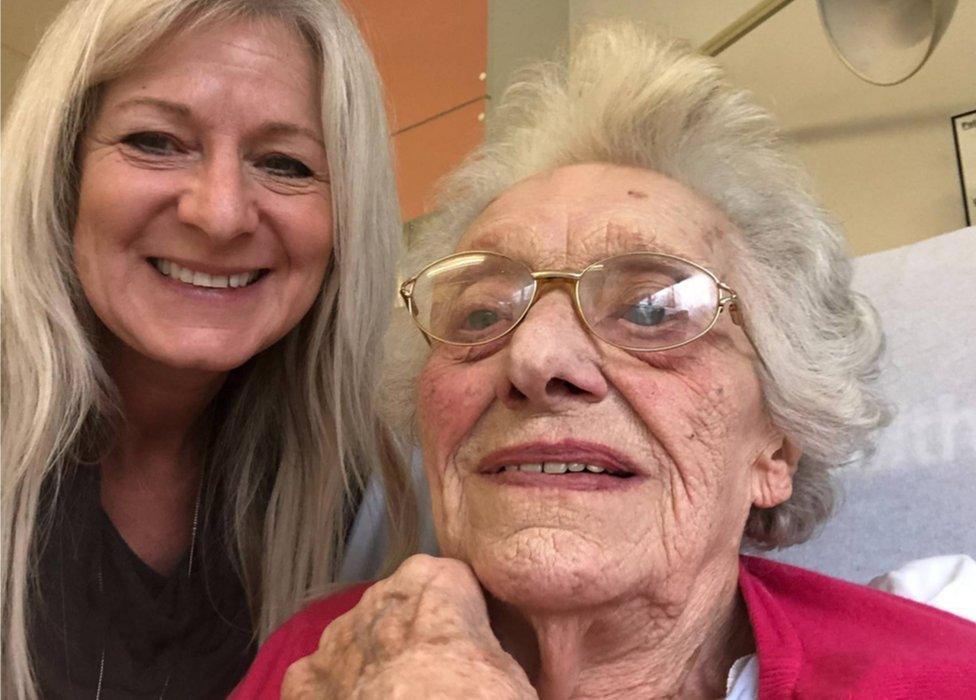
Jo Barrie lost her mother Nancy Lovering after she was discharged from hospital to a care home and then contracted Covid
Families who lost loved ones to Covid-19 in Scottish care homes are considering legal action following a ruling in England.
UK government policies on discharging untested patients from hospital at the start of the Covid pandemic were ruled unlawful at the High Court in London.
The case applied to England but could "open floodgates" of cases in Scotland, one bereaved relative warned.
The Scottish government said it would "examine the findings in detail".
A spokesman said ministers took decisions based on the best scientific and clinical evidence they had to keep people in care homes "as safe as possible".
In the early days of the pandemic more than half of the elderly hospital patients discharged to nearly 200 Scottish care homes had not been tested for Covid.
Last year First Minister Nicola Sturgeon accepted that the practice had cost lives, and said: "We got some things wrong and I feel the responsibility of that every single day."
Lawyer Aamer Anwar, who is acting for families bereaved by Covid, said they would look into what legal action could be taken as a result of the ruling in England.
He said there were 3,774 Covid-19 deaths in Scotland's care homes up to the end of March 2021, which "operated as petri dish for the spread of the Covid-19 virus".
"Care homes repeatedly breached the human rights of their elderly residents as infected patients were transferred from hospitals without any thought for the risk of infection rapidly spreading to other residents," he said.
The lawyer also raised concerns that the Scottish public inquiry into the handling of the pandemic, led by Lady Poole, could "attempt to avoid scrutiny" of care homes.
"We will be considering in Scotland what further legal action can be taken against those responsible for the preventable deaths that took place in care homes," he added.
"We will be raising these issues with Lady Poole, the Scottish government, but also with the Lord Advocate Dorothy Bain QC to ask her to advise the families we represent why her inquiry into deaths in care homes is taking so long, and whether charges of corporate homicide will now follow."
What happened in the English ruling?
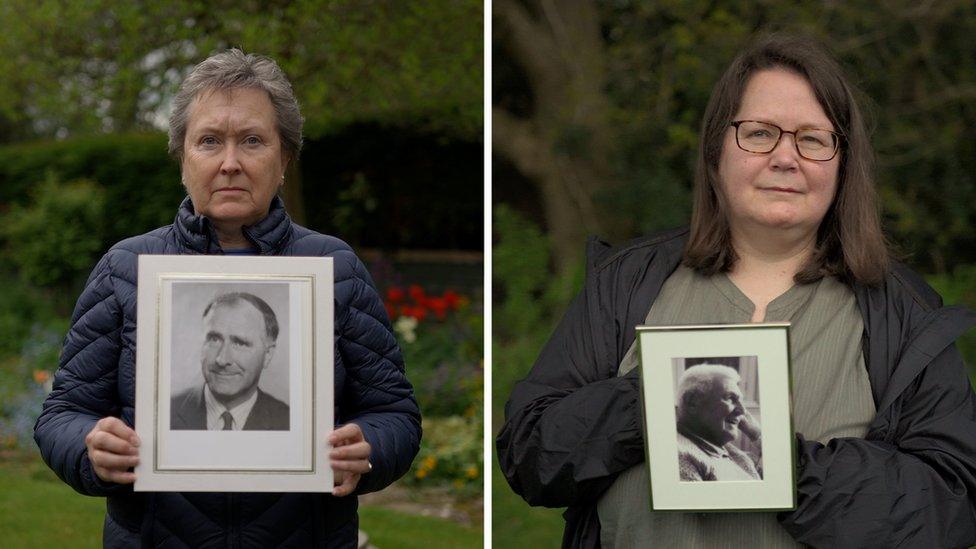
Dr Cathy Gardner (left) and Fay Harris said care home residents were "disregarded"
Dr Cath Gardner and Fay Harris took Public Health England and the health secretary, then Matt Hancock, to court after they both lost their fathers early in the pandemic.
They said there had been failures in protecting care home residents like their fathers and brought the legal challenge.
In their judgement, Lord Justice Bean and Mr Justice Garnham found the decisions of the then health secretary to make and maintain a series of policies contained in documents issued on 17 and 19 March and 2 April 2020 were unlawful.
They ruled this was because the drafters of those documents failed to take into account the risk to elderly and vulnerable residents from non-symptomatic transmission which had been highlighted by Sir Patrick Vallance in a radio interview as early as 13 March.
'This could really open the floodgates'
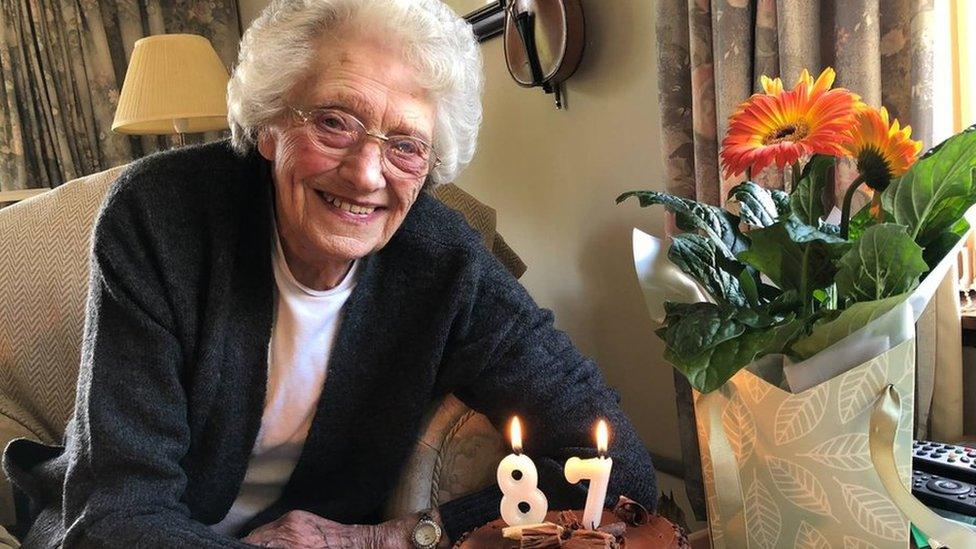
Nancy Lovering died after being discharged into a Crieff care home
Jo Barrie's mother Nancy Lovering was discharged from Perth Royal Infirmary, where she had been treated for a chest infection, to Ancaster House Care Home in Crieff in mid-March 2020. She was not tested for coronavirus.
The 88-year-old completed a 14-day quarantine period but then, four days after being allowed into the residence's public areas, her family was informed of an outbreak in the home.
Mrs Lovering became ill and died in hospital.
Data released last year, external revealed that 13 hospital patients were discharged to Ancaster House between March and May 2020. At least one patient was untested, and at least one other was discharged despite testing positive for coronavirus.
Ms Barrie told BBC Scotland the High Court ruling for England came as a "bolt out of the blue" with a "mixture of sadness and relief".
"I felt all along that what they did wasn't right and I was powerless to do anything about it."
She said she was now considering taking legal action and felt the verdict in England would prompt similar action in Scotland.
"My initial reaction was 'wow'," she said. "This could really open the floodgates. I think it gives hopes to all groups who've persevered."
'Compelling judgement'
Dr Donald Macaskill, chief executive of Scottish Care, which represents care homes, told BBC Radio Scotland's Lunchtime Live programme the High Court judgement was a "really significant ruling".
He said the it showed that at the start of the pandemic the Department of Health and UK ministers had prioritised the NHS to such an extent that "they did not give due attention to the knowledge that all of us had" about the risk asymptomatic people posed when they were admitted into care homes without testing.
"It is a very sad judgement for the families and relatives and friends of those who died, but it's a very compelling judgement to enable us to examine the actions that were taken at the start," he said.
The Scottish inquiry would have to consider the hospital discharge policy for untested patients going into care homes and the ability of those residences to support individuals who were asymptomatic and were therefore thought not to pose a risk to other residents, Dr Macaskill said.
He added: "The priority was 'we must protect the NHS' and I think across the UK the consequences of that was a discharge of individuals because of a fear that hospitals would be overrun."
Protection through vaccination
A government spokesman said its "priority throughout the pandemic has been to save lives".
"We have sought to take the best decisions, based on the best scientific and clinical evidence that we have had at any given time, to keep people in our care homes as safe as possible," he said. "That is why in order to protect our care home residents, we have continued to prioritise the oldest first to receive protection through vaccination since the rollout began in January 2021."
Scotland's public inquiry into the handling of the Covid pandemic will scrutinise decisions that were taken over the course of the crisis.
The government said the inquiry would include "the issue of discharge to care homes".
A spokesperson for the inquiry said work had been taking place to get the right systems and staff in place to support its work, and Lady Poole had already met groups including bereaved families.
"The inquiry is independent of government and will carry out a fair, open and thorough investigation," she added.
- Published18 April 2021

- Published1 October 2021

- Published27 April 2022
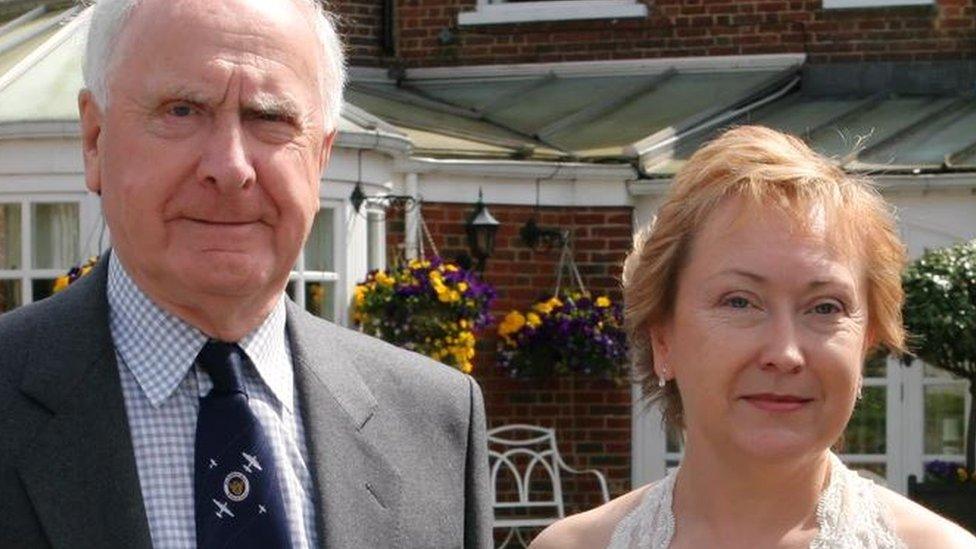
- Published31 January 2024
